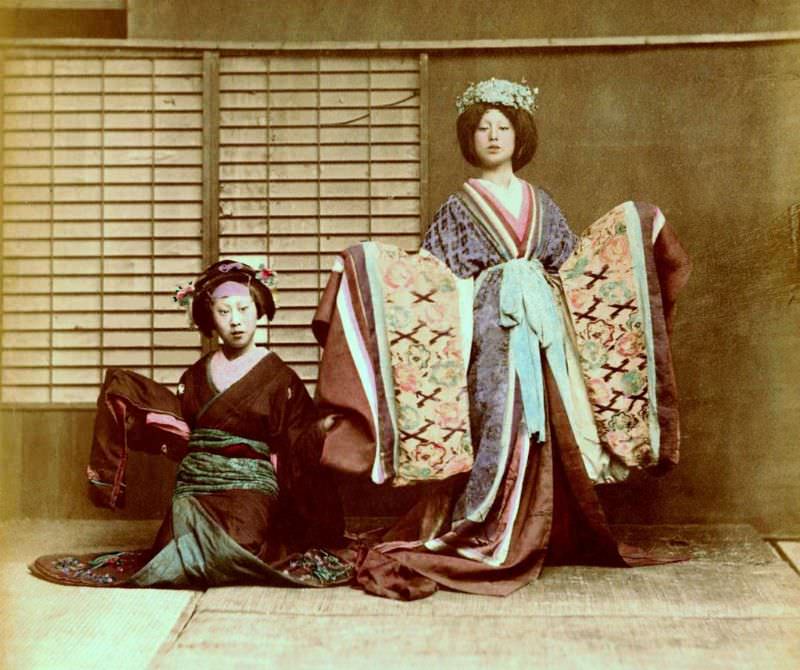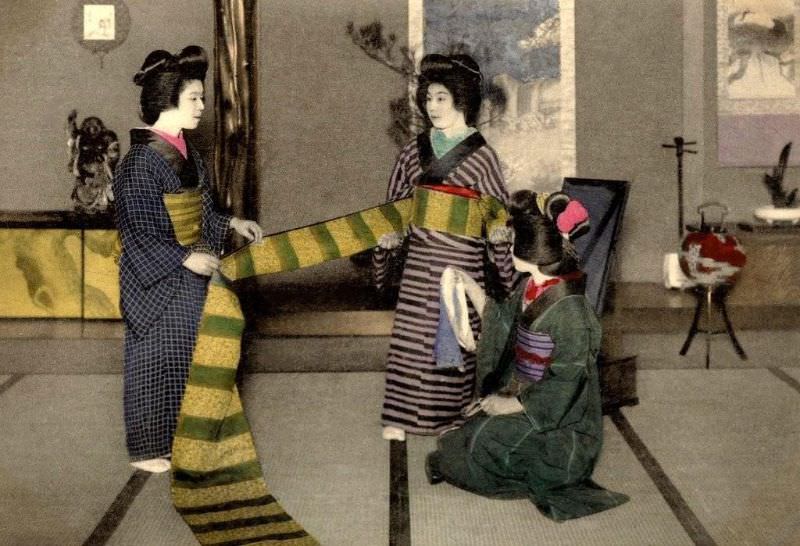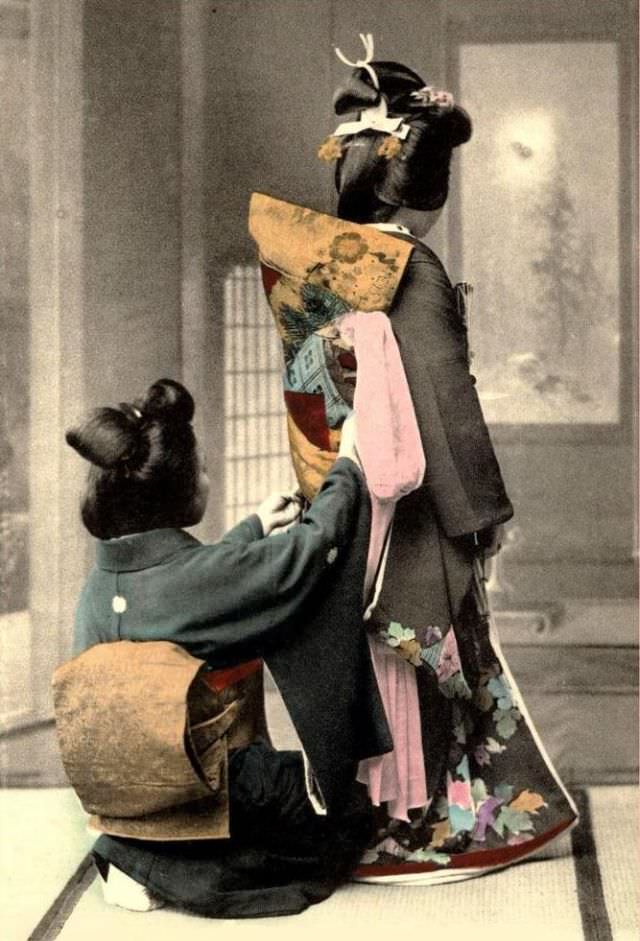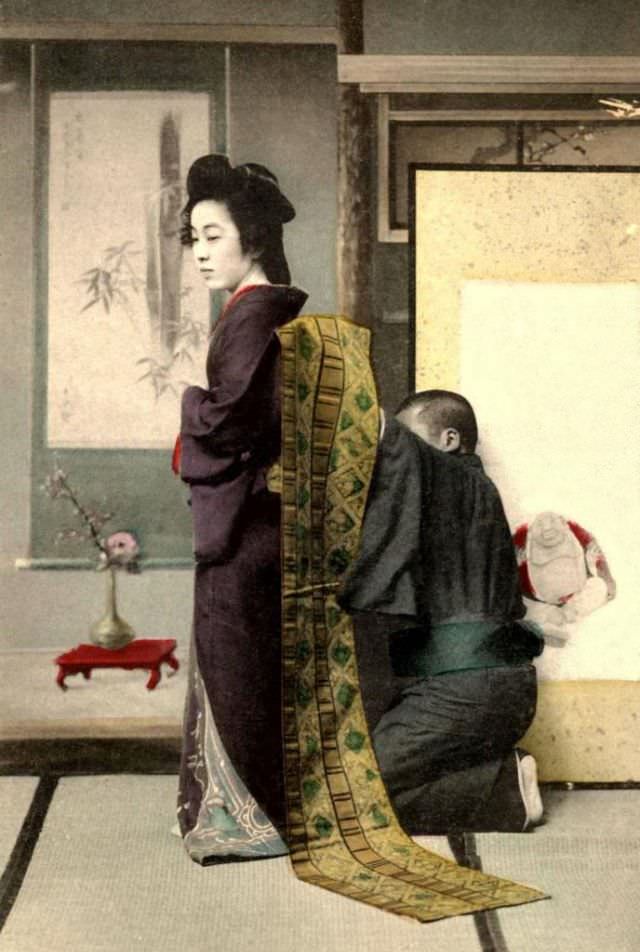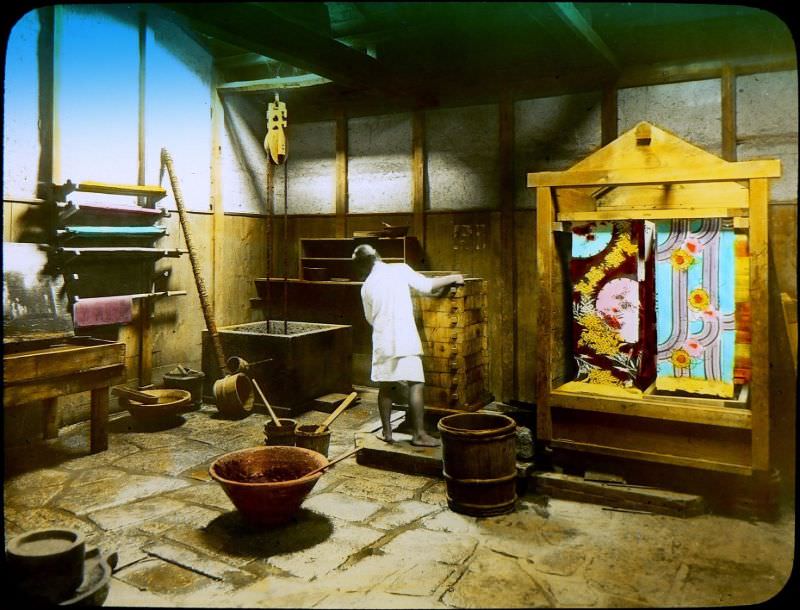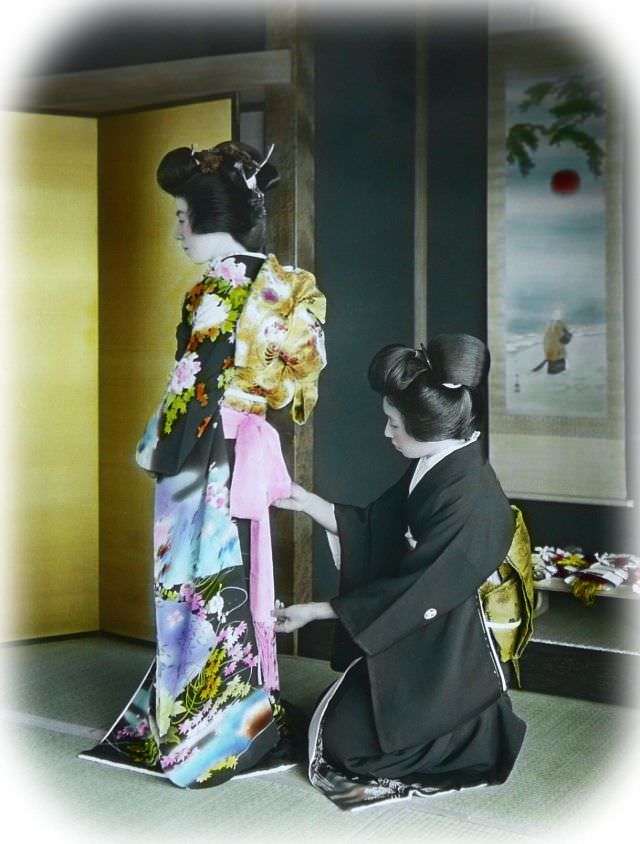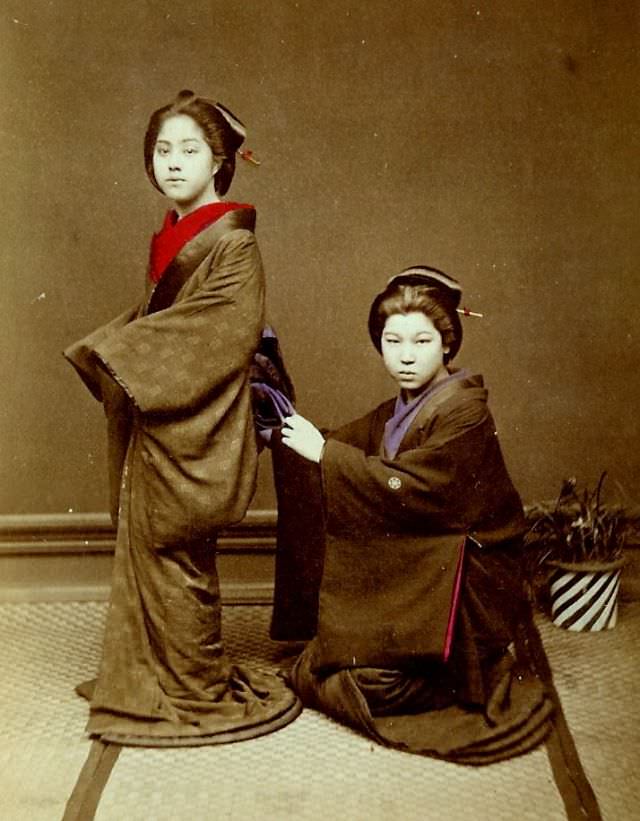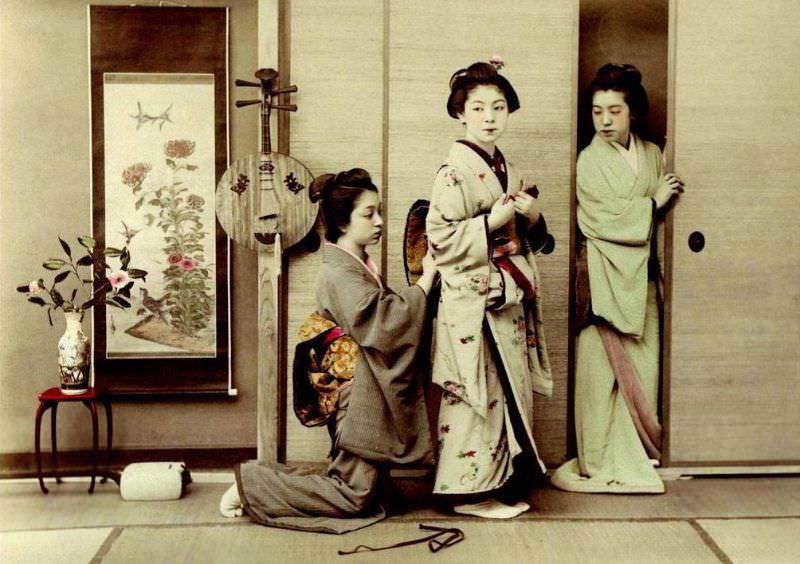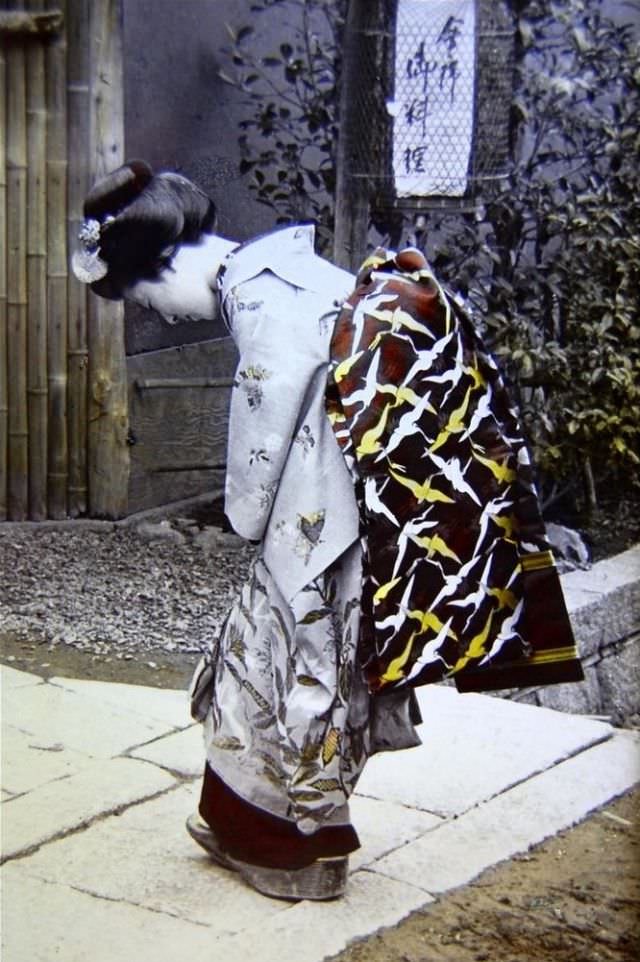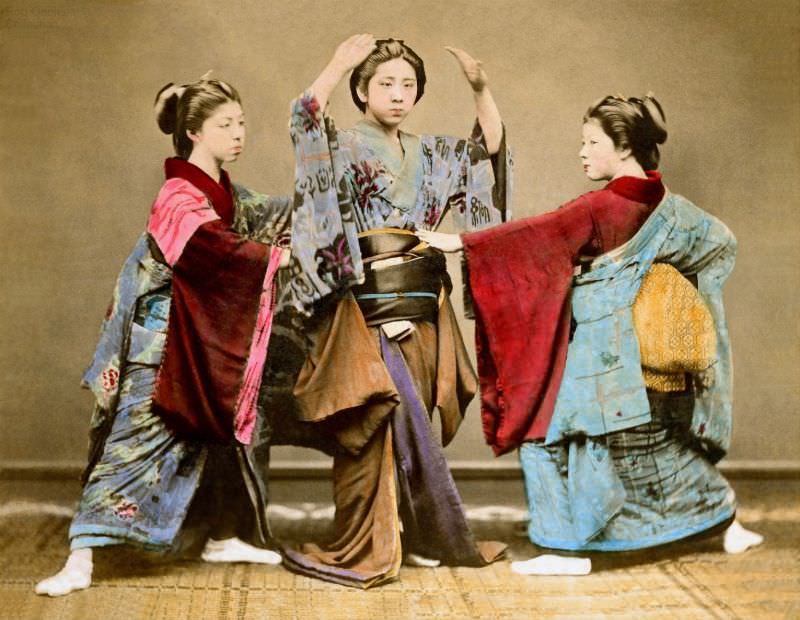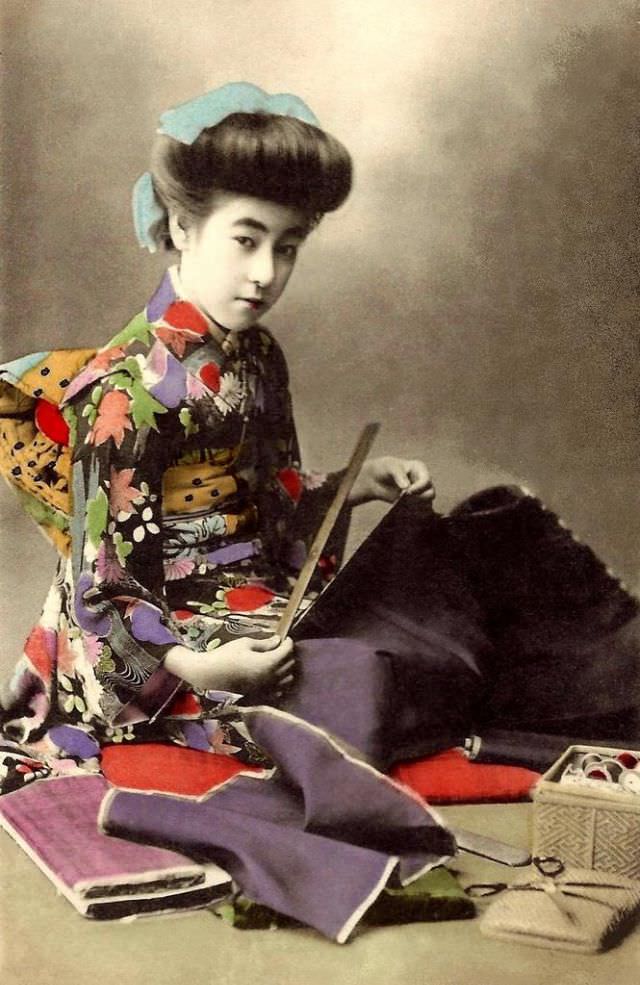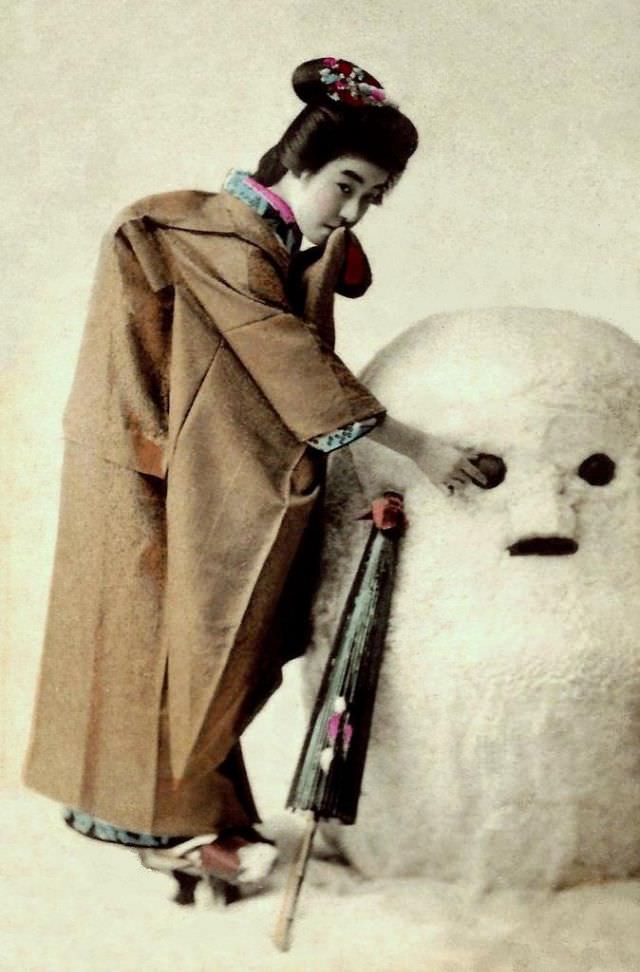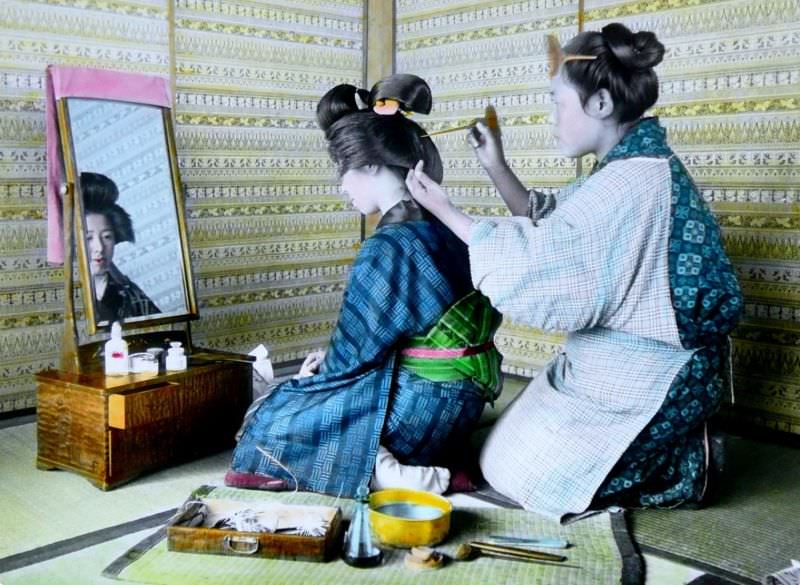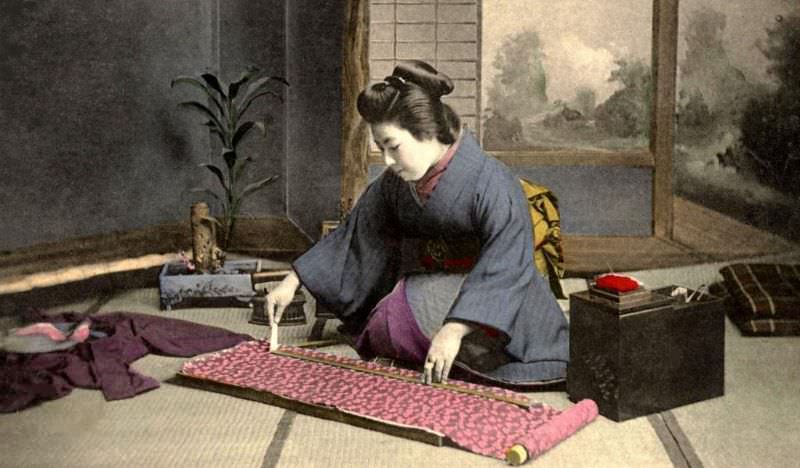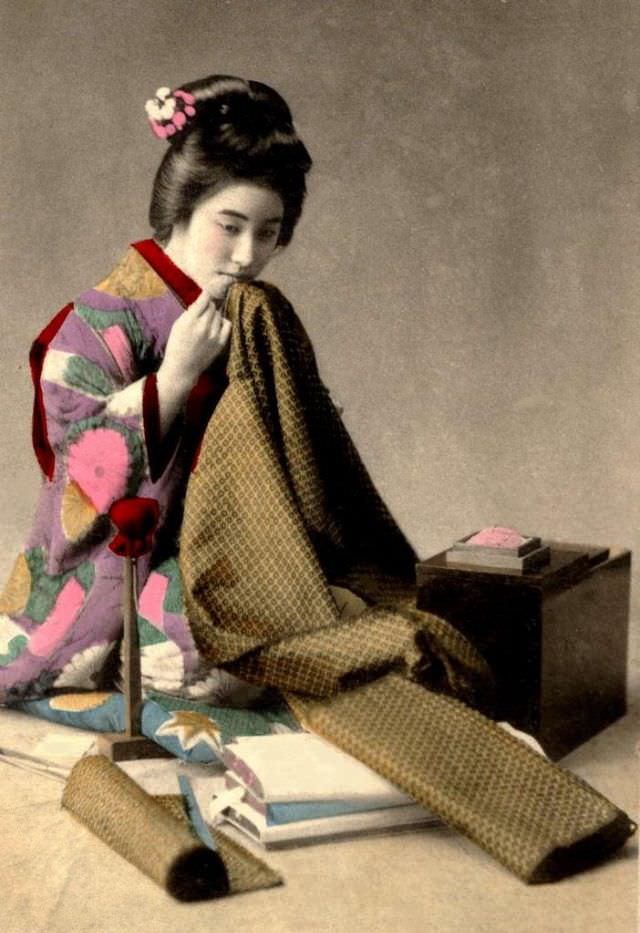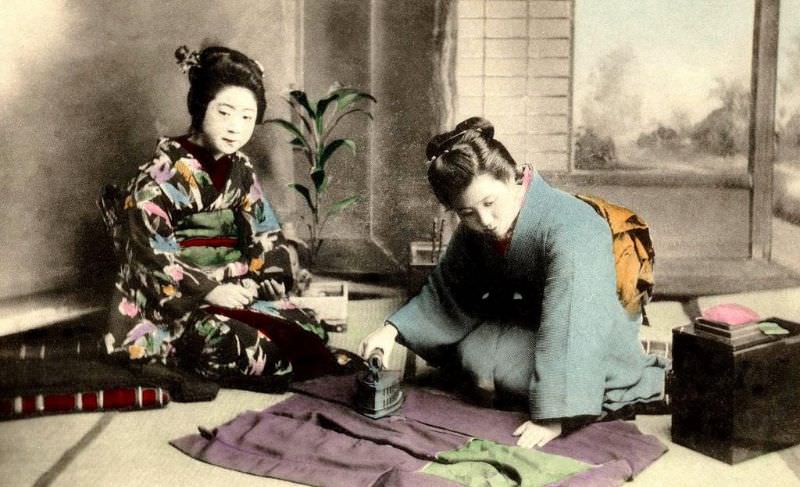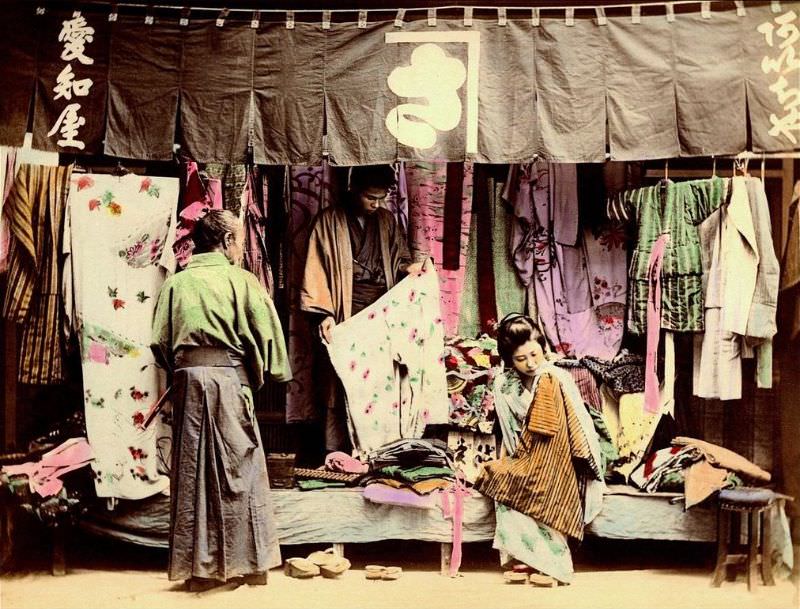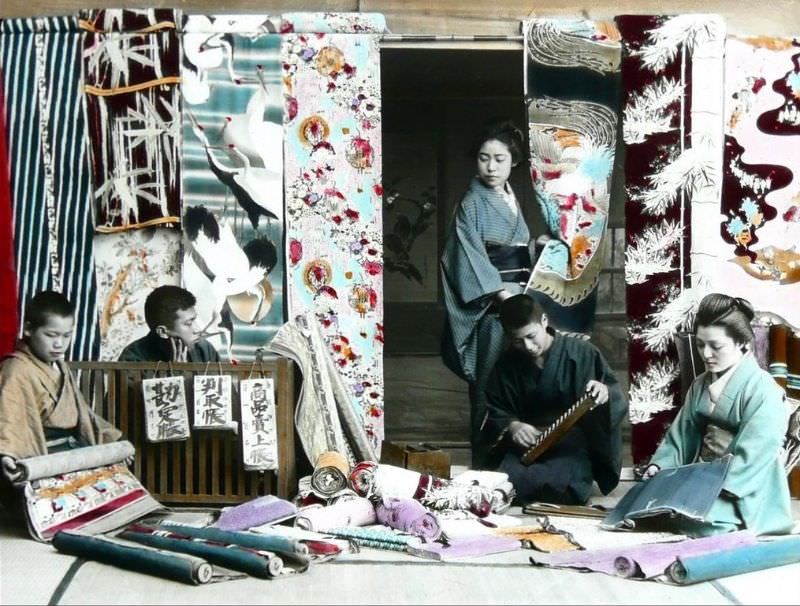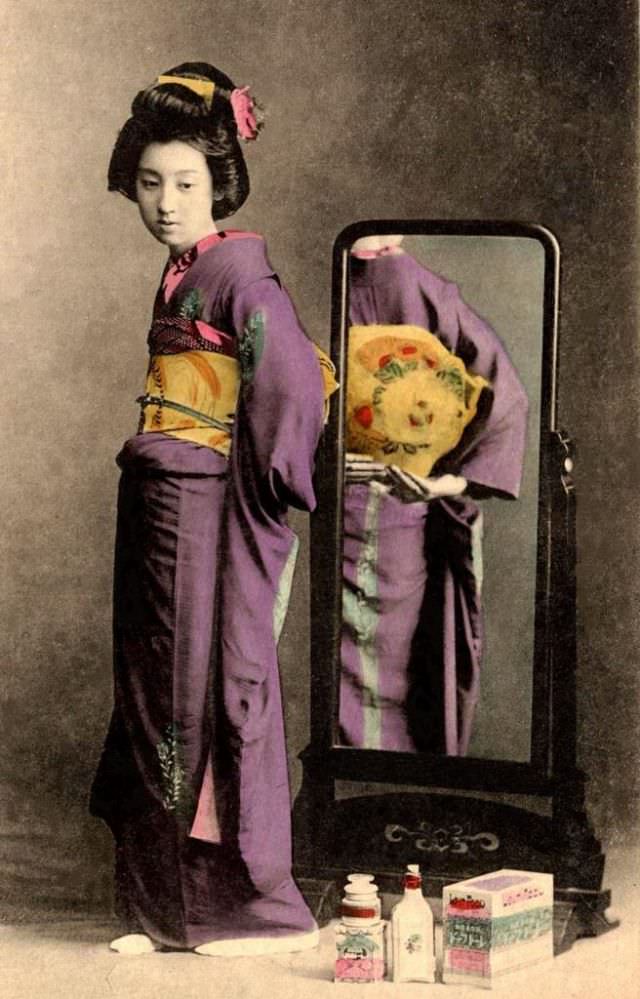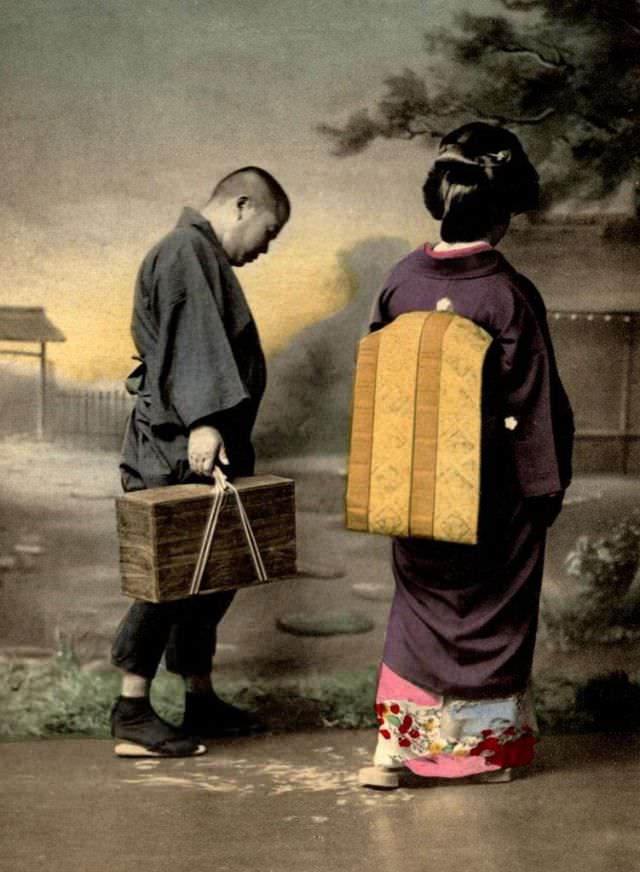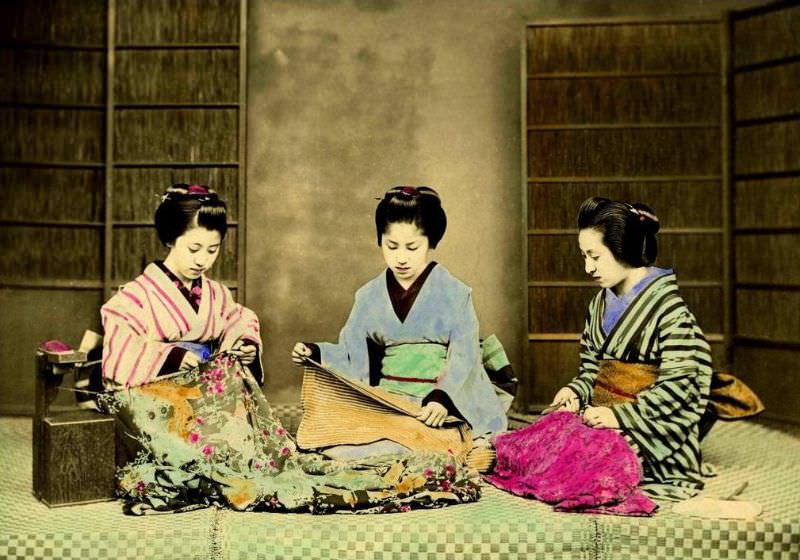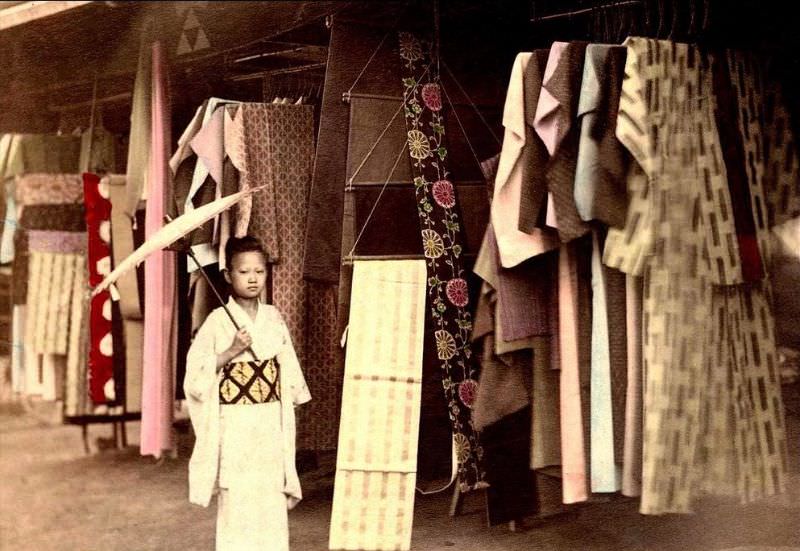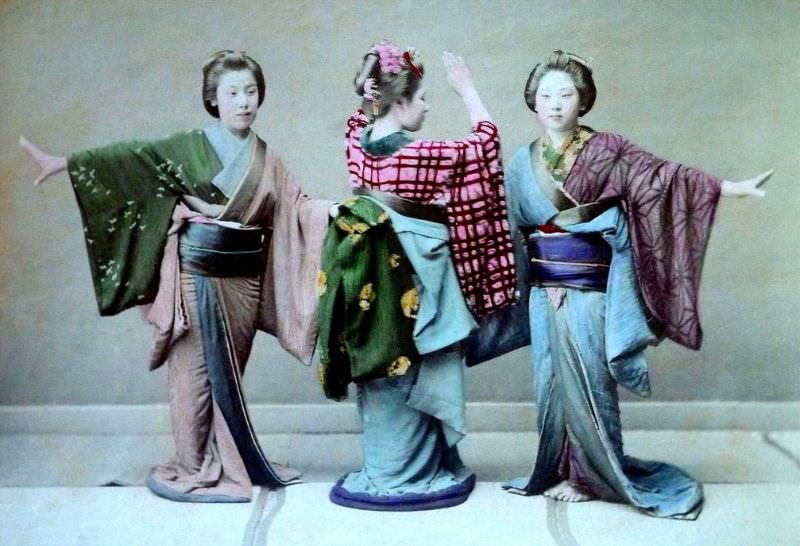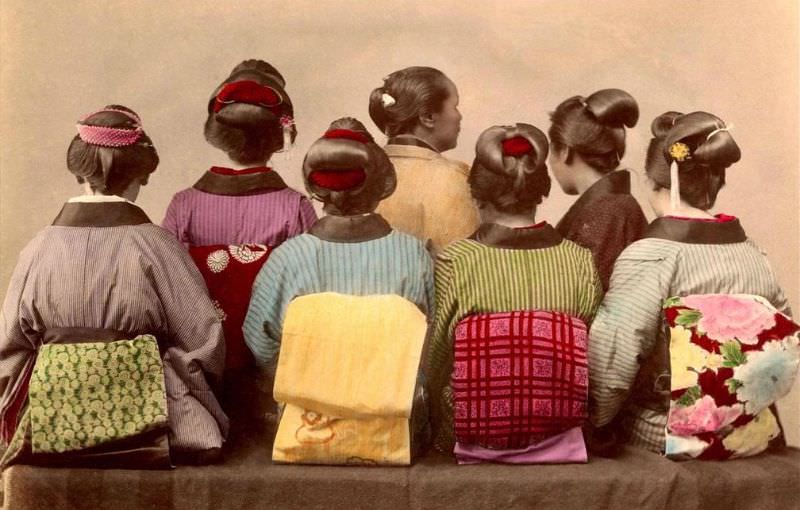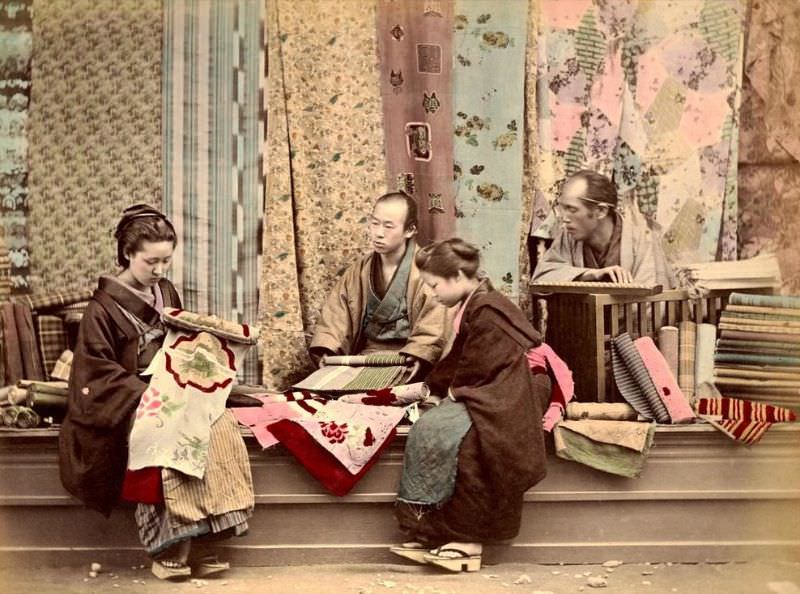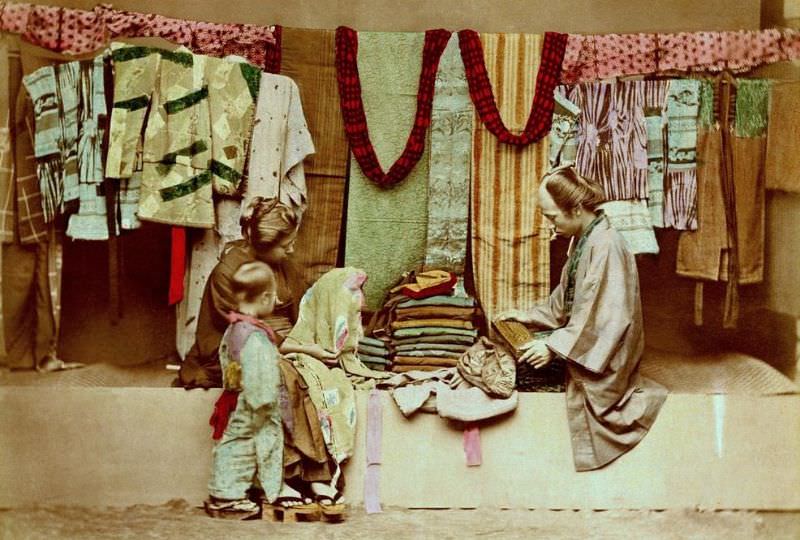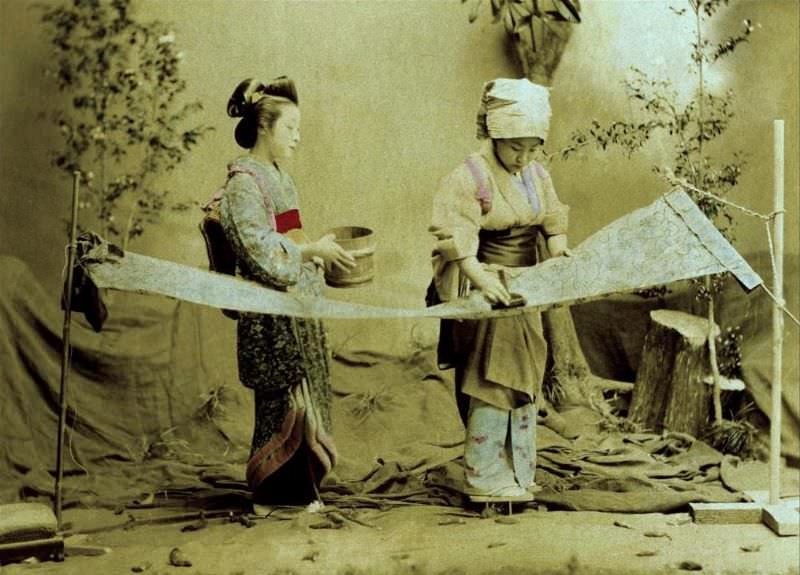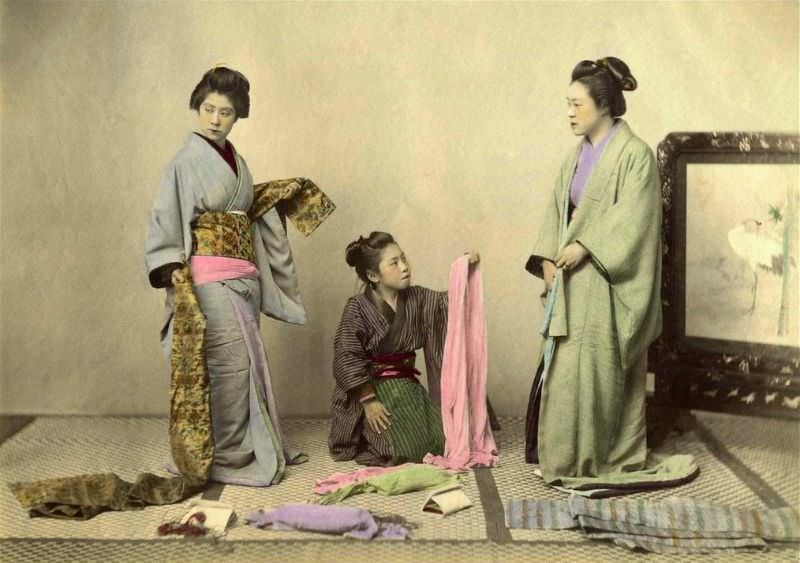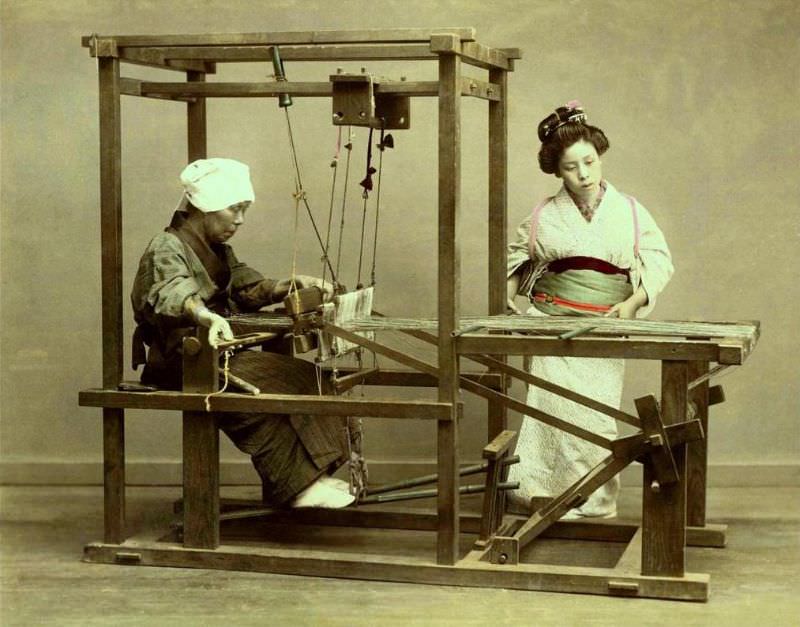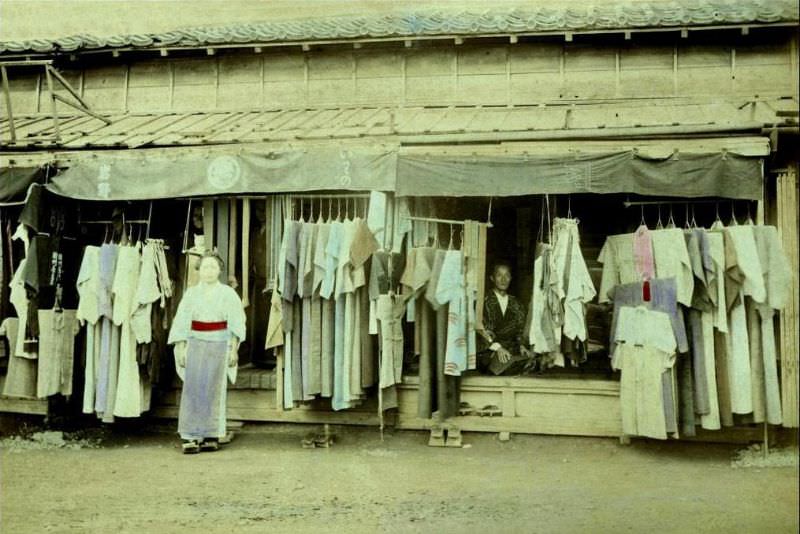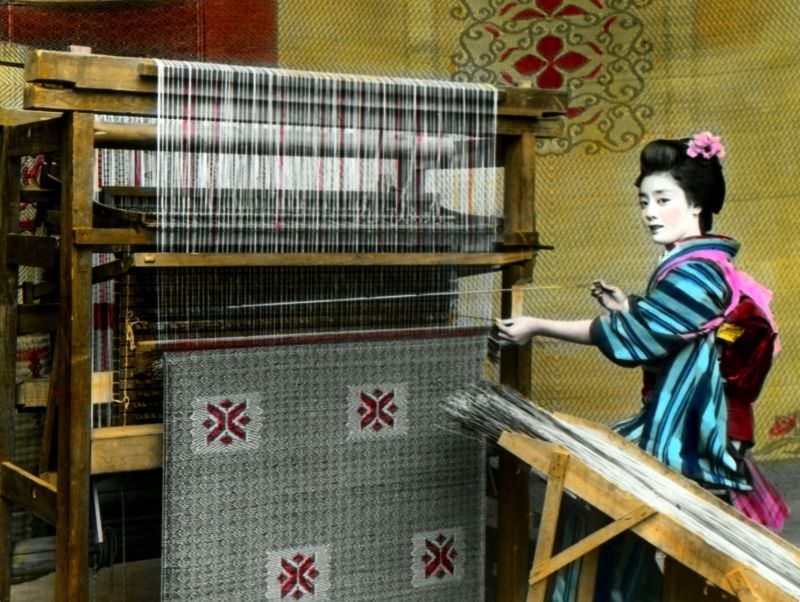kimono is a traditional Japanese garment and the national dress of Japan. The garment has a T-shape with square sleeves and a rectangular body, and is worn with left side wrapped over right, unless the wearer is deceased. Kimonos are typically worn with a sash, called an obi, and are usually paired with zōri sandals and tabi socks.
The word kimono originally meant clothing in Japanese. In recent years, the word has been used specifically to refer to traditional Japanese clothing. Japan’s people typically wore one-piece garments (such as trousers or skirts) between the Nara period (710-794) and the 20th century. In the Heian period, a new technique for making kimonos was developed. It involves cutting fabric in straight lines and sewing it together. Using this technique, kimono makers did not have to worry about the shape of the wearer’s body.
Kimonos with straight-line cuts had many advantages. They were easy to fold. In addition, they were suitable for all weather: They could be worn as layers for warmth in winter, and kimonos made of breathable fabric such as linen were comfortable in summer. Kimonos gained popularity in Japan due to these advantages. Japanese people developed a sharper sense of color as the practice of layering kimonos became fashionable, and they began paying attention to how kimonos of different colors looked together. In the past, color combinations often reflected the season or class of a person. During this time, what we now consider to be traditional Japanese color combinations developed.
Japan was heavily influenced by foreign cultures during the Meiji period (1868-1912). A government initiative encouraged people to adopt Western fashion. For official functions, military personnel and government officials were required to wear Western clothing. For ordinary citizens wearing kimonos on formal occasions, the garments had to bear the wearer’s family crest, which identified the wearer’s family background. (That law no longer exists.) Nowadays, many Japanese only wear kimonos at special occasions or on holidays, such as weddings, funerals, and tea ceremonies.
Below are some colorized historical photos of Japanese women in the traditional Kimono dresses from the early 1900s.


